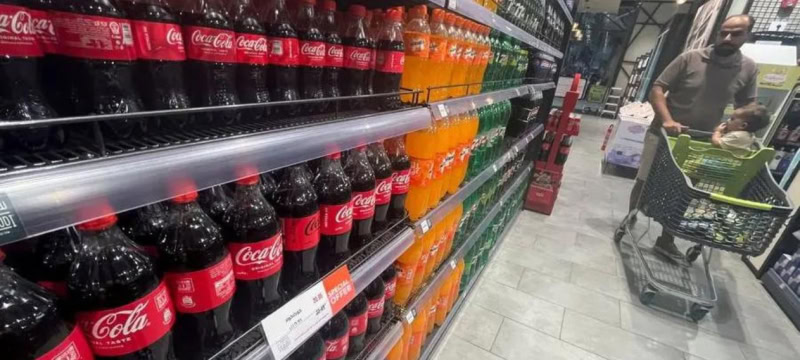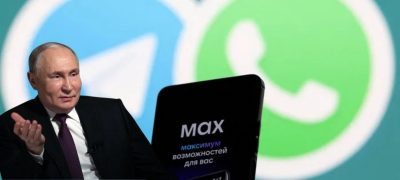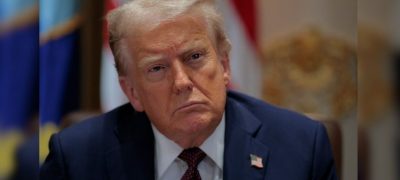Coca-Cola (KO.N) and PepsiCo (PEP.O) have invested hundreds of millions over the decades to build demand for their beverages in Muslim-majority countries such as Egypt and Pakistan. However, both companies now face challenges from local sodas due to consumer boycotts, which view these global brands as symbols of America and, by extension, Israel, amid the Gaza conflict.
In Egypt, Coca-Cola’s sales have plummeted this year, while local brand V7 has seen a threefold increase in exports across the Middle East.
Read more: CCP Approves Coca-Cola Icecek’s $300 Million Acquisition of Coca-Cola Pakistan
In Bangladesh, a backlash forced Coca-Cola to cancel an ad campaign in response to the boycott. Similarly, Pepsi’s growth in the Middle East has stalled since the Gaza war began in October.
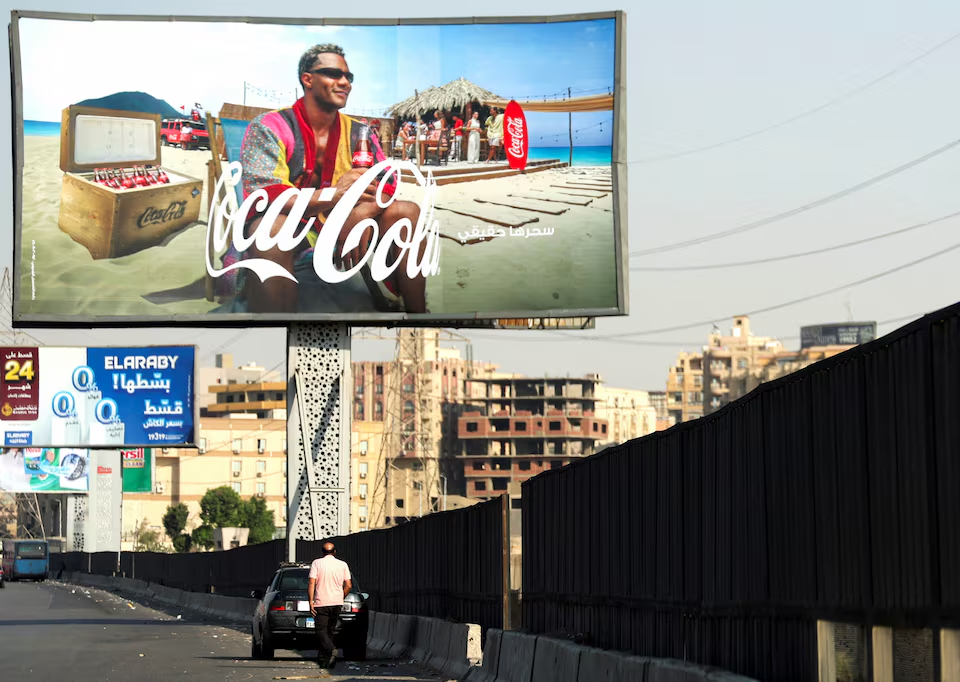
In April, Pakistani corporate executive Sunbal Hassan chose to exclude Coca-Cola and Pepsi from her wedding menu in Karachi. She expressed a desire to avoid supporting what she perceives as funds going to the United States, a key ally of Israel.
“By boycotting, one can contribute to this cause,” Hassan stated. Instead, she offered her guests Pakistani brand Cola Next. She is not alone in this stance. Although it is challenging to quantify the exact financial impact, market researchers NielsenIQ report a 7% decline in sales for Western beverage brands in the Middle East during the first half of the year, despite Coca-Cola and PepsiCo still maintaining growth in some countries in the region.
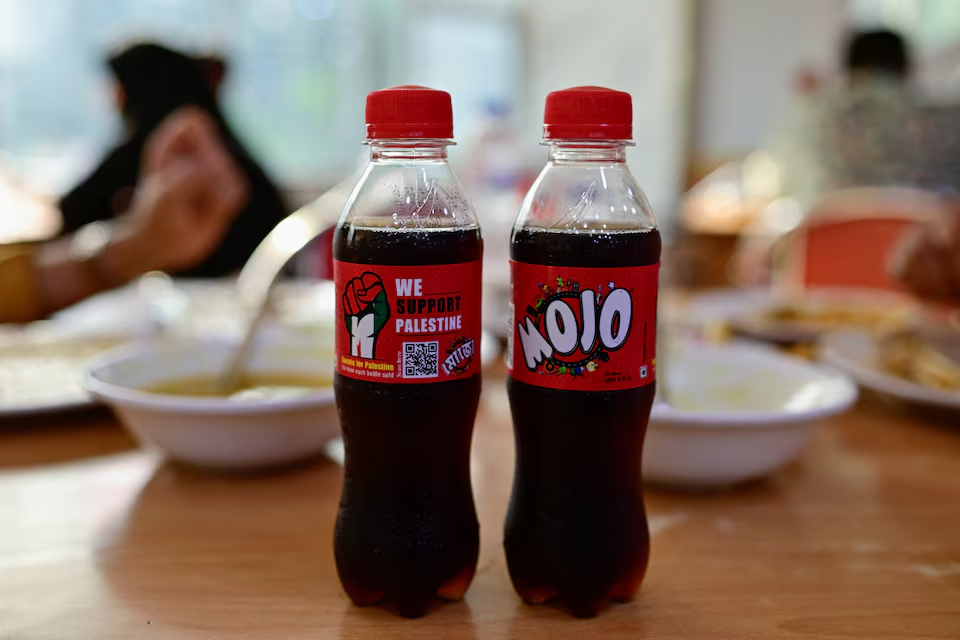
In Pakistan, Krave Mart, a leading delivery app, has reported a significant rise in the popularity of local cola brands such as Cola Next and Pakola, which now account for around 12% of the soft drinks market, up from about 2.5% before the boycott, according to founder Kassim Shroff. Pakola, an ice-cream soda-flavored drink, has seen the largest increase in sales. Shroff did not provide specific sales figures for Coca-Cola and PepsiCo.
Consumer boycotts have a long history, dating back to an 18th-century anti-slavery sugar protest in Britain. The tactic was also used to oppose apartheid in South Africa and has been widely employed against Israel through the Boycott, Divestment, and Sanctions (BDS) movement.
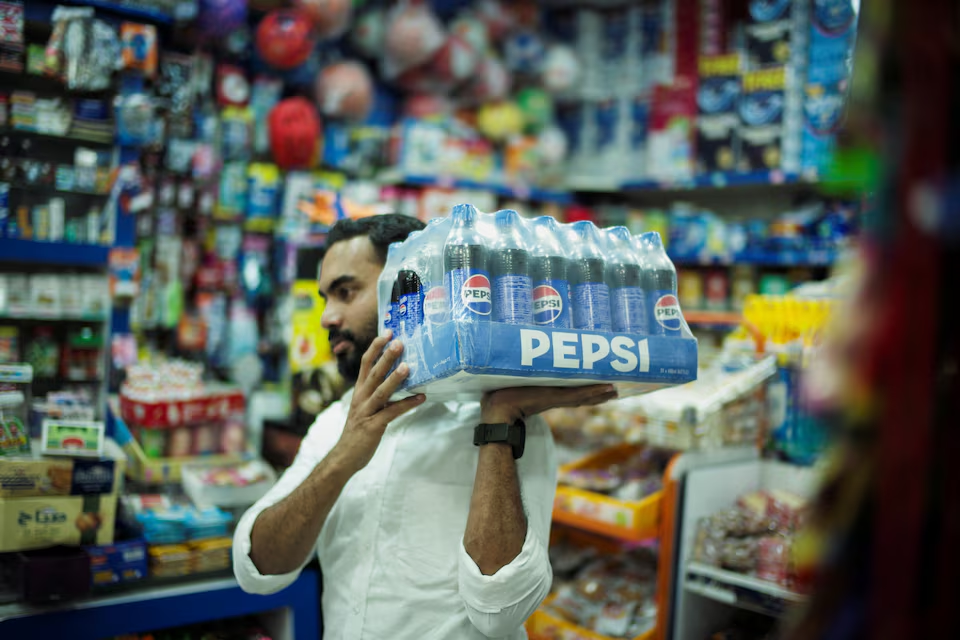
Many consumers avoiding Coca-Cola and PepsiCo cite longstanding U.S. support for Israel, including during the current conflict with Hamas. PepsiCo CEO Ramon Laguarta acknowledged that political perceptions are influencing consumer choices, particularly in countries like Lebanon, Pakistan, and Egypt, though he noted the financial impact is not significant at this time.
In 2023, PepsiCo’s revenue from Africa, the Middle East, and South Asia was $6 billion, while Coca-Cola’s revenue from Europe, the Middle East, and Africa was $8 billion. Since the October 7 Hamas attacks, PepsiCo’s beverage volumes in the affected regions saw minimal growth, and Coca-Cola experienced a decline in sales in Egypt.
Both companies have stated they do not fund military operations. Palestinian-American businessman Zahi Khouri, who runs Coca-Cola’s bottling plant in the West Bank, commented that boycotts have limited impact and that ending the occupation would be more effective.
HISTORICAL TARGETS
The major soda companies have faced consumer pressure in the Muslim world for decades. After Coca-Cola established a factory in Israel in the 1960s, it was boycotted by the Arab League, a move that boosted Pepsi’s market presence in the Middle East for years.
Even now, Coca-Cola trails behind Pepsi in market share in Egypt and Pakistan, as noted by market research firm GlobalData. PepsiCo also encountered boycotts when it bought Israel’s SodaStream for $3.2 billion in 2018.
However, in recent years, countries with growing, young populations, like Pakistan, have become key growth markets for these soda giants. Coca-Cola has invested $1 billion in Pakistan since 2008, leading to years of double-digit sales growth, with PepsiCo seeing similar gains.
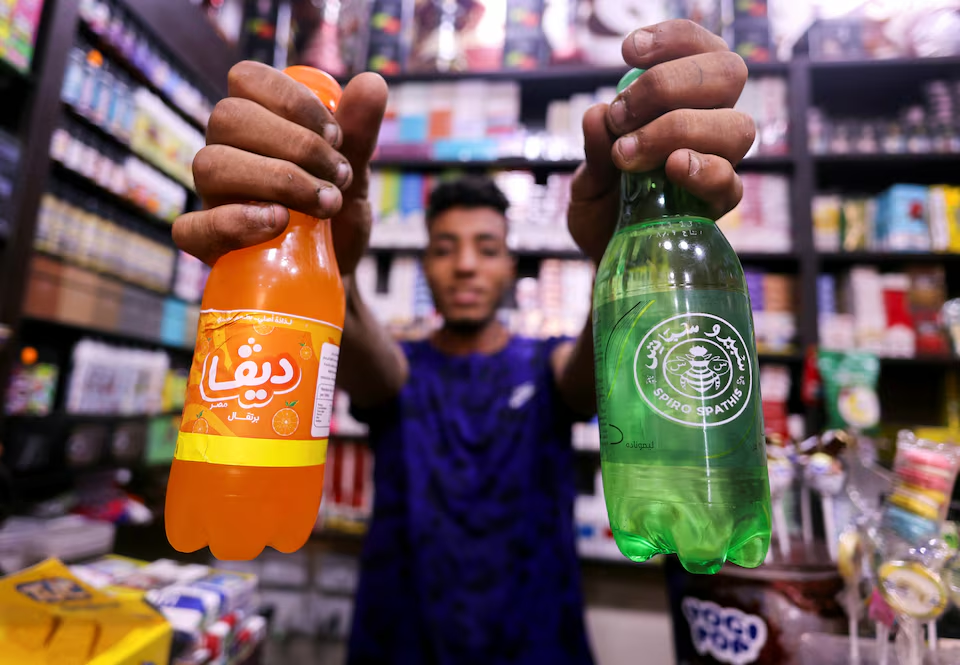
Now, both Coca-Cola and Pepsi are losing market share to local brands. Cola Next, a more affordable alternative, updated its ad slogan in March to “Because Cola Next is Pakistani,” highlighting its local origin.
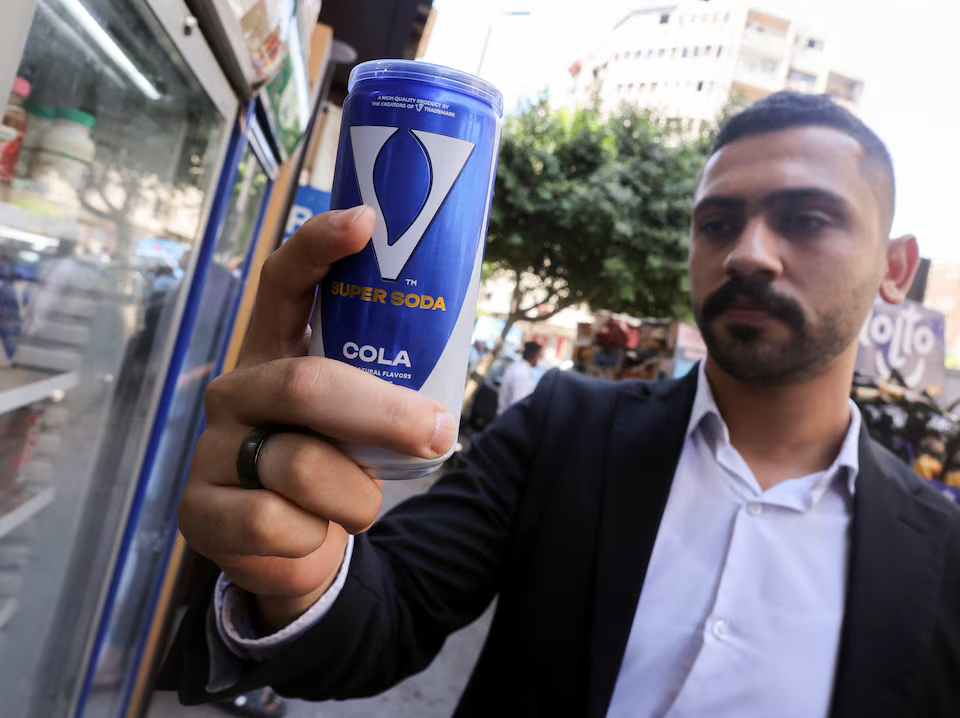
Cola Next’s CEO, Mian Zulfiqar Ahmed, mentioned that the brand’s factories are struggling to keep up with the increased demand but did not provide specific volume figures. Anti-Coca-Cola sentiments have spread among restaurants, private schools, and university students in Karachi, impacting the brand’s reputation despite its sponsorship of the popular Coke Studio music show in Pakistan.
In Egypt, exports of V7 cola have tripled compared to 2023, according to founder Mohamed Nour, a former Coca-Cola executive. V7, which has been on the market since July 2023, saw a 40% increase in sales in Egypt and is now available in 21 countries.
Paul Musgrave, an associate professor of government at Georgetown University in Qatar, cautioned that boycotts could cause lasting damage to consumer loyalty. He noted that breaking consumer habits can make it difficult for brands to regain their former market positions, though he did not specify the financial impact on the companies.
BANGLADESH BACKFIRE
In Bangladesh, Coca-Cola launched an ad featuring a shopkeeper discussing the company’s operations in Palestine. Following backlash over perceived insensitivity, Coca-Cola withdrew the ad in June and issued an apology, acknowledging that the campaign “missed the mark.” According to an unnamed Bangladeshi advertising executive, the ad exacerbated the boycott.
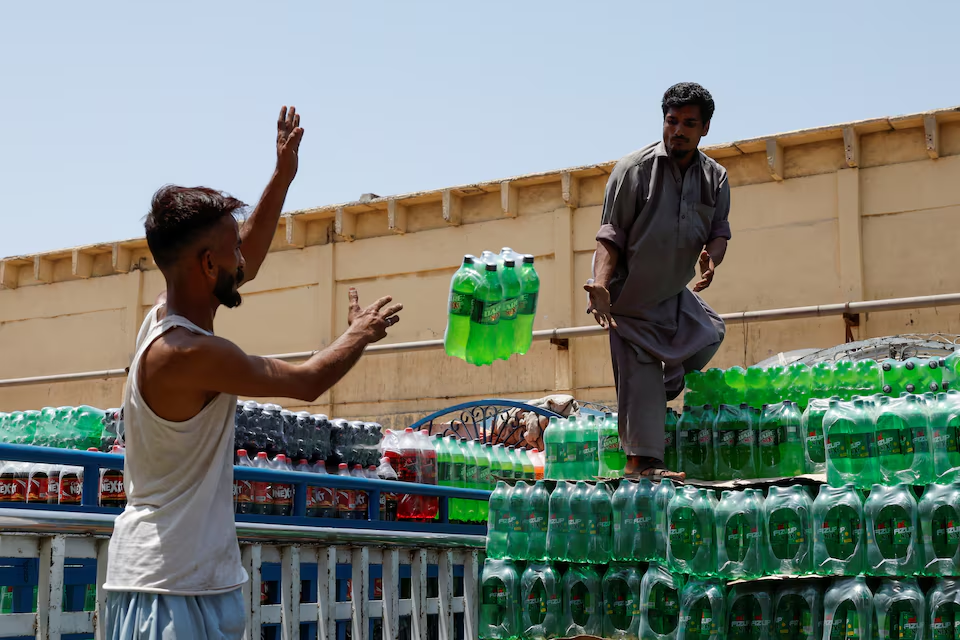
Other American brands perceived as symbols of Western culture, like McDonald’s and Starbucks, are also facing anti-Israel boycotts. NielsenIQ reports a 4% drop in market share for global brands in the Middle East during the first half of 2024, with visible protests targeting widely-available sodas.
Inflation and economic issues in Pakistan, Egypt, and Bangladesh have further diminished consumers’ purchasing power, making local, more affordable brands more attractive. Last year, Coca-Cola’s market share in Pakistan decreased to 5.7% from 6.3% in 2022, while Pepsi’s dropped to 10.4% from 10.8%, according to GlobalData.
FUTURE PLANS
Coca-Cola and PepsiCo continue to view these countries as key growth markets, especially as Western markets slow. Despite the boycotts, Coca-Cola invested $22 million in technology upgrades in Pakistan in April. In May, Coca-Cola’s bottler in Pakistan assured investors of a “positive outlook” and reaffirmed its long-term commitment to the market, highlighting its potential as the world’s fifth most-populous country.
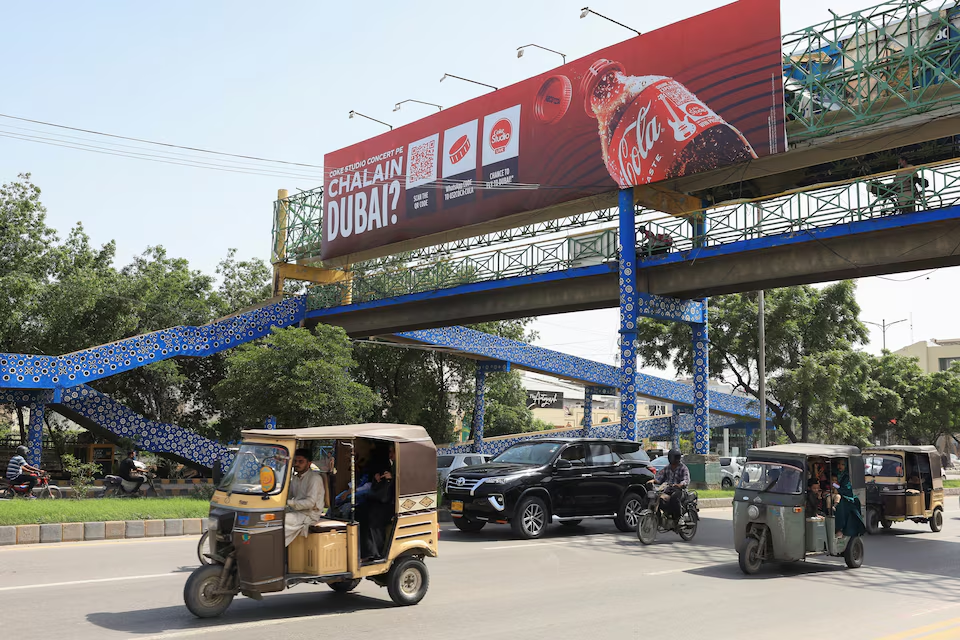
Recently, PepsiCo has reintroduced its Teem soda brand to the Pakistani market, now available in a cola flavor with “Made in Pakistan” prominently displayed on the label. Both PepsiCo and Coca-Cola continue to embed their brands in local communities through sponsorships of charities, musicians, and cricket teams.
These efforts are crucial for maintaining their presence and long-term viability in these markets, despite current challenges, according to Georgetown’s Musgrave. He emphasized that becoming an integral part of the community helps sustain their brand’s position.


